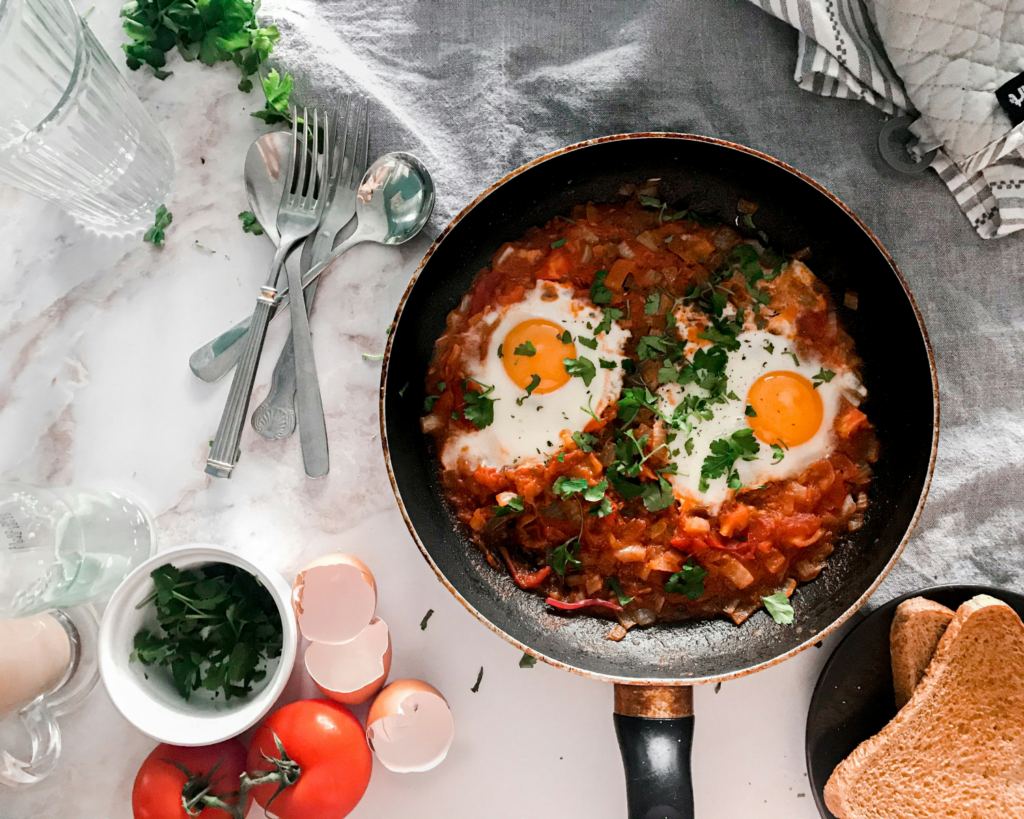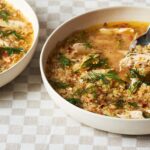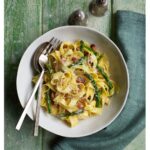- Feel Good
- 19th Mar 2024
- 1.9k Views
- 0
- 8 minutes
Why protein is important for female health

As a millennial, I remember all too well the days of skinny chic.
That past, slightly ghostly memory of too-thin models and a desperation to do anything to be thin. A time when protein was seen as a surefire way to end up with ‘too much’ muscle.
Luckily, that’s in the past.
The Protein ‘Trend’
Check out any fitness or wellness influencer’s feed and you’ll see that protein is a big deal. We’re waking up to its benefits, not just for building muscle but for our wellbeing.
I have to say that I have been on my own personal protein revolution over the last six months. I reckon that my daily intake of protein is now what I used to get in a week.
Do I feel better because of it?
Absolutely.
Why do I feel better?
Well, I’m a little rustier on the science of it all, so let’s take a deep dive into protein for female wellness together.

What even is protein?
Protein is a nutrient which the body uses to grow and repair cells and to help them work properly. Proteins are made up of building blocks called amino acids. There are about 20 different amino acids that link together in different combinations. Your body uses them to make new proteins, such as muscle and bone, and other compounds such as enzymes and hormones. It can also use them as an energy source.
This means that protein is very important for our general health and the way that we feel in day-to-day life – including how energetic we feel.
Protein foods
Some food sources of dietary protein include:
- lean meats – beef, lamb, pork
- poultry – chicken, turkey, duck
- fish and seafood – fish, prawns, crab, lobster, mussels
- dairy products – milk, yoghurt (especially Greek yoghurt), cheese (especially cottage cheese)
- nuts (including nut pastes) and seeds – almonds, pine nuts, walnuts, macadamias, hazelnuts, cashews, pumpkin seeds, sesame seeds, sunflower seeds
- legumes and beans – all beans, lentils, chickpeas, split peas, tofu.
Protein and female health
As we know, everybody’s body is different. And for women, our dietary needs can fluctuate depending on our hormonal needs which can be affected by our stage of life – perimenopause, adolescence etc. But even within our personal cycle, our dietary needs are different. You can learn more about cycle syncing and how our dietary needs change depending on where we are in our cycle here.
What we can say is that women need protein to support their wellbeing and stay fit and well. The British Heart Foundation recommends that most adults need around 0.75g of protein per kilo of body weight per day. For the average woman this is 45g and for men 55g but of course averages don’t represent individuals and this study from the School of Medicine at the University of Aberdeen explains that a range of factors can affect how much protein an individual should be including in their diet.
For example, someone with a chronic illness would require higher levels of protein. The level and intensity of regular exercise also has a significant impact on protein needs. The paper says; ‘In summary, protein requirements vary on an individual basis and depend on various factors, such as age, health status and PAL (Physical Activity Level). These factors are not reflected in current recommendations for the general population.’

My diet before
This time last year I was eating a pescatarian diet that was largely plant based with some fish and dairy. I was using legumes and pulses as a source of protein which is a great place to start. However, looking at the math I should have been aiming for about 41g of protein per day – even before considering the fact I have a chronic illness and take part in a lot of exercise. I simply wasn’t meeting that need with the way I was eating.
With some simple swaps I have increased my protein intake from about 20-30g a day to between 70 and 80g per day.
Now I have far more energy, I’ve gained weight after years of being unable to and I am trying new forms of exercise I would never have felt strong enough to before. There are of course other factors involved but shifting my diet has certainly made a huge improvement to my wellbeing – my iron, vitamin b and calcium levels are all normal now after several years of being low.
How to make the change without being overwhelmed?
Here are four tried and tested tips to incorporate more protein into your diet.
- Eat a protein rich breakfast. Protein can help us to stay satiated for longer, meaning we are less likely to crave sugary snacks mid-morning if we start the day with a high protein breakfast. Personally, I’m a fan of a protein smoothie but if you have the time to make whole foods why not try having eggs for breakfast? Something like this Turkish Eggs recipe would be perfect for a weekend early morning protein boost.
- Swap the snacks. I don’t know about you, but I am a snacker. Particularly just before and during my period. And while I often find myself craving chocolate (or cherry bakewells which are my current addiction), swapping snacks for a more nutritionally beneficial alternative can help us feel more energised and incorporate more protein into our day.
I’ll be honest that anything with peanut butter is my protein snack hack, but it could be boiled eggs, a protein bar or smoothie. Even having this before a few squares of chocolate is an improvement on just chocolate – right? - Perfect your protein smoothie. Recently I have incorporated a daily protein smoothie into my diet and it ensures on those days I decide to be plant based I am still getting all the protein I need. I love the Vegan Protein Blend by Free Soul as it is specifically designed with women in mind. The vanilla flavour is my go to and I like it mixed with a banana, handful of blueberries, almond milk and the Free Soul Greens. Whether it’s a post workout snack or to start the day, I have really felt the benefit of these smoothies to curb my cravings for sugar and achieve my protein requirements each day.
- Try new recipes. Cooking should be fun. Though often it can feel like a chore. Me and my partner have loved trying Bored of Lunch Healthy Slow Cooker Recipes. The meals are well balanced, there’s a calorie breakdown per portion and they incorporate a range of proteins – from fish and meat to plant based options. Plus, using a slow cooker means we feel as though dinner has been magically prepared for us at the end of the day. If you don’t have a slow cooker don’t worry. Simply pick some new recipes that prioritise protein and experiment with new flavours to fall back in love with cooking.
Looking for more information?
As women, our bodies have very specific needs which change throughout our cycle. It’s important to get to know our own bodies, our own cravings and changing energy levels to be able to eat accordingly.
Some of the women who have inspired me to look into my own health and wellbeing, and change my eating and exercise habits have included:
- Hazel Wallace aka The Food Medic
Hazel is an amazing doctor who has a podcast bursting with information on nutrition and exercise. Her latest book The Female Factor focuses on disparities in research on female specific health concerns and includes information on nutrition as well as fertility, the menopause and more. - Ro Huntriss aka Fertility Dietician
Ro is a dietician who specialises in fertility and female health. Her website offers plans to help women coping with PCOS and struggling with fertility issues. Her book Deliciously Healthy Fertility breaks down the way nutrition can benefit fertility and pregnancy with a range of recipes and information. - Rachel Brathen aka Yoga Girl
Rachel is a yoga teacher, author and herbalist who speaks about her experience as a woman and mother. She is very honest about her own experiences and while she is not a source of medical information, she does offer great insights into how changes to her diet have benefited her wellbeing and that of her family. Her change from being a vegan to eating animal products was a large part of the shift in my own diet to incorporating meat and dairy. Her podcast From the Heart talks about all sorts of topics but for information on eating a high protein diet and its benefits I’d recommend 10 Things You Can Do For Your Health Right Now and From Deprivation to Nourishment: The Journey Back to Animal Foods.
No matter whether you are plant based or eat anything, protein is an important part of the diet which can help us to feel well, build muscle, have stronger bones and avoid flagging energy.
My own experience has been that increasing protein has left me feeling fuller, more energetic and less reliant on sugary snacks. It might just be worth a go!











Comments